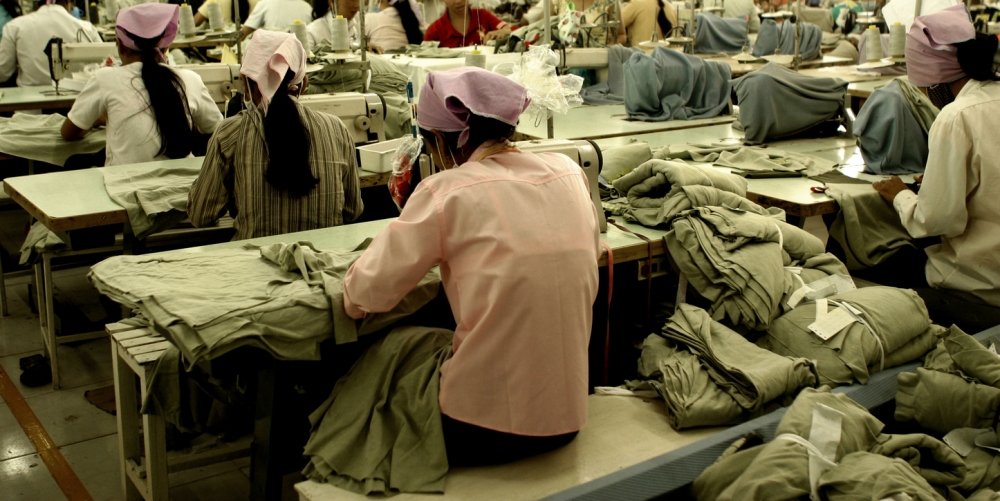
The True Price of Consumerism
Those brand-new shoes you’re wearing may put you on the leading edge of trendy, but can the people who make them afford to cover their own feet? Your new smartphone may come with all the bells and whistles, but how does the technology benefit the factory worker who tirelessly assembles the tiny components for just dollars a day? Issues such as these — the glaring inequalities between the people who produce and those who buy consumer goods — are among the topics of a panel discussion at UC Santa Barbara examining the theory versus the reality of how products are made and consumed, along with what the various actors along the supply chain can do to be more responsible and the role of youth in the solution.
The discussion, to be held from 4:30-6:30 p.m. Wednesday, April 19 at UCSB’s Theater and Dance Building, Room 1701, will feature the perspectives of UCSB professors Richard Applebaum from the departments of sociology and global studies and historian Nelson Lichtenstein. Joining them are Ian Bentley, the cofounder and CEO of socially conscious Santa Barbara retailer Parker Clay, and sustainable fashion blogger/UC Irvine student Aditi Mayer.
The UCSB panel discussion is one of several UC systemwide events that marks the first Global Poverty Action Day (GPAD) in which UC students come together to promote global equity. GPAD is led by the Student Action Committee for the Eradication of Poverty and Inequality (SACEPI), the student arm of the Blum Federation, which joins all 10 UC campus Blum Centers to catalyze the UC resources toward solutions for local and global poverty through research, education and public service.
“It’s been exciting to watch each of these events develop at many UC campuses,” said UCSB SACEPI representative Caitlin Rathe. “Students at each campus are taking a different approach to raising awareness and inspiring action around sustainable development and poverty, but we’re working together to amplify student voices across the UC and make change that is greater than our individual efforts.”
The goals of GPAD are to highlight issues that resonate with today’s youth, to provide new and diverse perspectives on these issues by working with campus and community experts and to clearly identify what youth can do to get involved and take action on these issues.
“I think Global Poverty Action Day is the first initiative I’ve seen within and across campuses to get students centrally engaged in the conversation around poverty, and I hope it will serve as a launching pad for more campus activities centered on understanding and tackling global poverty,” said Funke Aderonmu, a SACEPI representative from UC Davis.
GPAD is one sign of the growing engagement of university students across the nation. The 2015 Cooperative Institutional Research Program (CIRP) Freshman Survey, undertaken by the Higher Education Research Institute at UCLA, shows that the level of interest in political and civic engagement among first-year, full-time university students has reached its highest point in the past 50 years, when the study was created. Almost 40 percent of students indicated an interest in community leadership, and 60 percent had a “strong interest in improving their understanding of other countries and cultures.”



